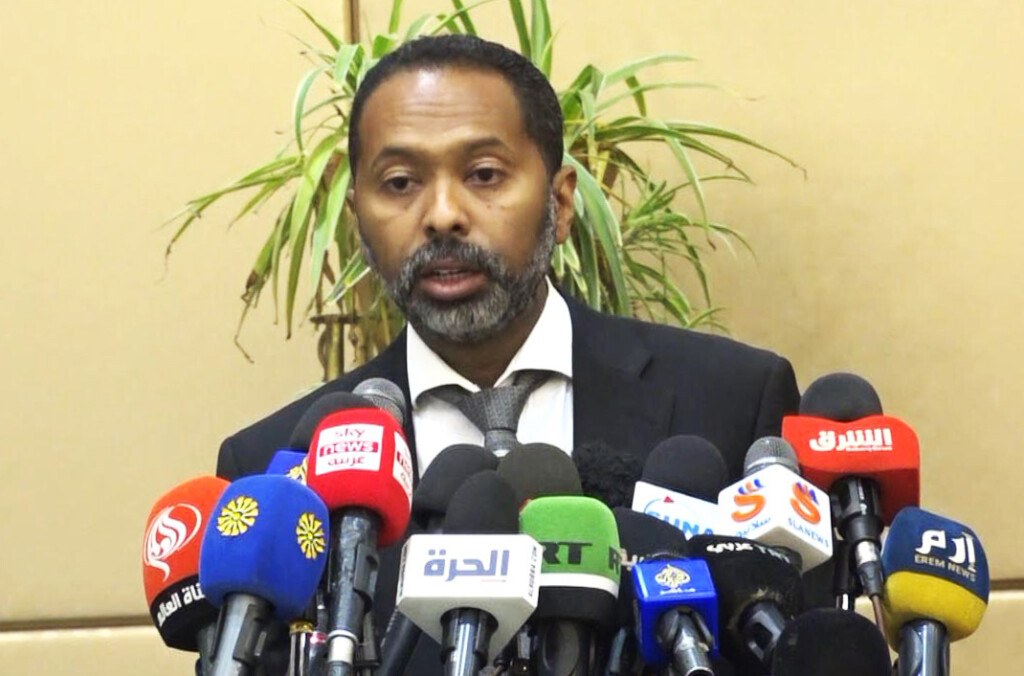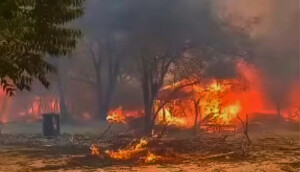Sudan Security Reform conference concludes

The official spokesman for the political process, Khaled Omar Yousef, addresses the opening of the Security Reform Workshop at the Friendship Hall in Khartoum on Sunday (Photo: SUNA)
KHARTOUM –
The dialogue conference on Security Reform ended yesterday after four days of discussions at Khartoum’s Friendship Hall. Representatives of the military refrained from attending the closing session. The workshop’s primary objective was to develop a plan to establish a unified, professional, and national army while also reforming the police and intelligence apparatus.
On Tuesday, the workshop focused on the foundations and principles of reform, integration, and modernisation in the military institution. Past sessions have also engaged in discussions about police reform, as well as examining intelligence reform under a democratic system.
Participants in the workshop reportedly criticised the police’s control of the main stage during the presentation and their claim that they do not need reform. They also revealed the police’s demands for independence and for the interior minister to be from within the institution.
Final recommendations will be presented during the closing session, which will be attended by representatives of signatory parties to the Framework Agreement, leaders of Sudan’s Armed Forces, leading figureheads in civil society, representatives from the United Nations Integrated Transition Assistance Mission in Sudan (UNITAMS), African Union (AU), Intergovernmental Authority on Development (IGAD) Trilateral Mechanism, and various diplomatic attendees.
Military integration
During the opening session of the conference, President of the Sovereignty Council and Commander-in-Chief of the Sudan Armed Forces (SAF), Lt Gen Abdelfattah El Burhan reaffirmed the SAF’s commitment to moving forward with the framework agreement and the process of democratic transition.
Sudan’s Vice Chairman of the Sovereignty Council and Commander of the Rapid Support Forces (RSF), Lt Gen Mohamed ‘Hemeti’ Dagalo, said that security and military reform in Sudan “is not a political activity and should not be subjected to any political agenda”.
Khalid Yousif, leading member of the Forces for Freedom and Change-Central Council and the official spokesperson for the political process, asserted that security and military reform is “one of the most important elements of institutional reform” in Sudan, that serves the democratic transformation and building a civil state.
General El Burhan pointed out that “the armed forces don’t want to empower any unelected political body,” stressing that “the political process that is taking place is purely Sudanese”.
He called for making use historical experiences and standards to build armed forces that are reliable for the Sudanese people, welcoming women to the military college and participation in military work, adding that they represent 12 per cent of the SAF, praising support provided by international friends and the international community to the country for democratic transition.
Hemeti underlined that “there are many models and examples in the processes of integrating armies, which often come in circumstances different from the Sudanese reality, as is the case in the experiences of South Africa, the Philippines, Zimbabwe, Namibia and other countries”.
“We must benefit from these experiences, putting into consideration the great differences between the armies of those countries and the situation of the RSF which was established according to a law,” he said, emphasising that the process of security and military reform needs to be developed through legislation.











 and then
and then